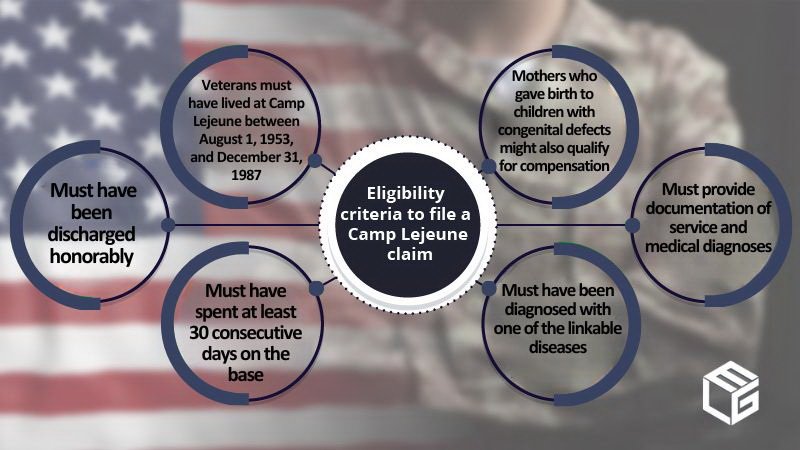Attention: We are no longer taking Camp Lejeune cases!
Contaminated water at Camp Lejeune a contributory factor to oral cavity cancer development
In 1982, the Marine Corps discovered certain volatile organic compounds (VOCs) in the drinking water provided by two water treatment plants on the base.
The Agency for Toxic Substances and Disease estimated that the levels of toxic chemicals in the Camp Lejeune water system were unbelievably high, several thousand times above the maximum safe limits.
During a 30-year period, from 1957 to 1987, military service members, their family members, and civilian workers were exposed to contaminated drinking water at the base.
It is estimated that over a thirty-year period, almost one million people were exposed to the contaminated water, including contractors and family members who were present at the base.
A comprehensive ATSDR study was conducted to determine whether potential exposures to the contaminated drinking water at Camp Lejeune are associated with a higher risk of death from certain types of cancers and several chronic diseases among civilians employed at the base.
Studies associate exposure to PCE with oral cavity cancer
Perchloroethylene is classified as a probable carcinogen chemical since 2012. A comprehensive study found evidence that high exposure to perchloroethylene (PCE) may increase the risk of oral cavity cancer in dry cleaning workers. Chlorinated solvents such as perchloroethylene have been used on military bases.
At Camp Lejeune, the drinking water was contaminated by perchloroethylene, also known as tetrachloroethylene. The source of pollution was an off-base dry cleaning establishment. According to the model results, the perchloroethylene level exceeded the current EPA maximum contaminant level at the Tarawa Terrace water treatment plant from November 1957 to February 1987. Over the years, perchloroethylene degraded in the groundwater to other hazardous chemicals such as trichloroethylene (TCE) and vinyl chloride.

